Sonam Shekhawat
Sonam Shekhawaton Jan 07, 2021
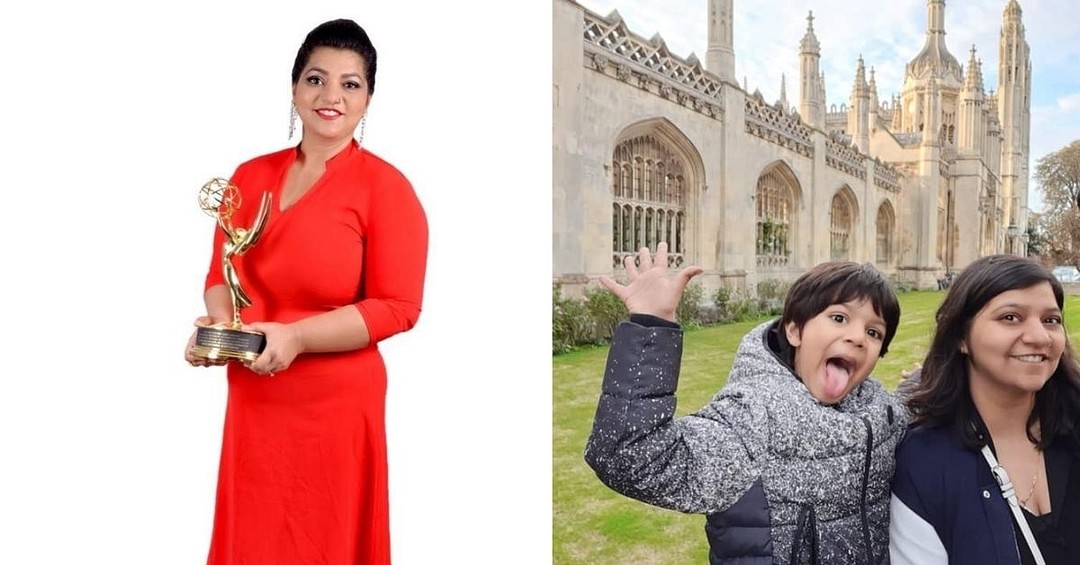
How This ‘Chota Bheem’ Writer Became the First Indian to Win an Emmy for Writing?
Sonam Shekhawat is an animator from Rajasthan, who became the first Indian writer to win an Emmy for her show, All Hail King Julien, which is currently airing on Netflix.
When Sonam Shekhawat was around five years old, her father took her to watch Jurassic Park in the theatre. While watching the movie, she found herself in awe of the characters, who, as her father said, were created by humans. This thought remained stuck in her mind — she, too, could create characters for television and the big screen. This drove her to begin writing stories. At the age of 11, Sonam, born in Karauli and raised in Jaipur, wrote poems that were published in several newspapers and magazines, and for which she also won a few national awards. At the age of 15, she began writing long stories, and even wrote a 500-page novel, which she eventually didn’t publish. “I was writing a story about four brothers. It was like Ramayana, but in a modern context. I only realised how long it was when I finished all my school notebooks while writing it, and had to ask my mother if we could buy more. My parents were surprised — it was only the beginning of the year, and I was already asking for more notebooks!”Many feathers in her cap
Soon after her schooling, Sonam pursued a degree in Animation and Multimedia from the Birla Institute of Technology. After finishing college, she got the opportunity to work with Reliance Animations as a 3D artist intern for three months. While she was working there, one of her senior colleagues, Sathya Narayanana, told her about Mensa (the largest and oldest high IQ society in the world), and suggested that she sit for a test. The result was astounding — Sonam found out that her IQ matches with only two percent of the world’s population. This explained her high precision memory and creativity. While still interning, she was provided an opportunity to write for a series named Shaktimaan Animated, which used to air on Sonic and Nickelodeon. She wrote the series’ title theme, as well as several tracks from its soundtrack. In 2012, Sonam moved on to Green Gold Animations, which was, at the time, the only company working with Disney. She wrote for a show named Mighty Raju. She went on to write 50-60 episodes for Chhota Bheem, and even wrote the script for four to five movies and 20-30 songs of the franchise. Sonam also conceptualised and created shows like Little Singham, Golmaal Junior and Bhoot Bandhu. So far, 17 shows produced in India have been written by her. She has also conceptualised and created shows airing in Europe and the US. When asked how she connects with children through her shows, Sonam says, “I’m a child trapped inside an adult’s body, so I find myself connecting with children very easily. I’ve always felt like I belonged in the animation industry.” In 2015, looking for a change in the content she was writing, Sonam joined Dreamworks Animation – Awesomeness TV. Here, she wrote for a show called All Hail King Julien, which is currently streaming on Netflix. All three seasons of the show were nominated for an Emmy Award, and Sonam won for Outstanding Writing for her animated series’ third season. With this, she became the first Indian to win an Emmy for writing. At present, she heads the Children and Family division of Nucleus Media, London. She credits her six-year-old son as having played a major role in her victory, and helping her gain a better understanding of children. “My son watches a lot of cartoon shows, and he himself is a great storyteller, and very creative. He inspires me to never stop what I’m doing — he tells his friends that his mother makes cartoons, and that he would like to do the same thing when he grows up,” Sonam says. She adds, “I always knew I liked kids, but when my son was born, I realised how much I truly loved them. He’s the most wonderful aspect of my life. Through him, I learned how much children observe when they watch something on TV. It’s not just the characters they watch — they absorb every detail in the background as well. Another aspect I love about them is how their solutions are always unconventional and creative. This brought a change in my writing, and I would make my characters solve problems using creativity.”‘Encyclopedia of Animation’
“I was only 20 when I started my career, but I seemed 16 — not because I was short, but because I was always childish by nature,” Sonam says, adding, “I was very curious, jumpy, and on edge. It was easy for people to not take me seriously, but I made a lot of changes eventually. After a point, people started noticing my work and creativity.” Her photographic memory soon earned her the nickname ‘Encyclopedia of Animation’. She was able to remember episodes frame by frame during production, and was able to recall what frames or shots can be reused from whichever episode at any given time. She says that while she has won many awards, the Emmys will always be special to her, as she was the first Indian writer to receive one. “Being an Academy Award-winning writer is definitely a matter of pride. People suddenly started recognising me on international platforms. It completely changed the direction of my career. Instead of worrying about what studio would take me, I was now able to choose which one I’d like to work with instead,” Sonam adds. “When the news was printed in Rajput magazines, many women came to me and said they were inspired to build their own careers the way I had,” she says, adding, “Women can have a career and a family. I’m a writer, but I’m also a mother. If this is the kind of space we create for all women, we can excel.” Sonam says that after she got married, she told the people she worked with that she now had other responsibilities to take care of as well. “I should never be asked to choose between my family and work. I was extremely upfront about it, unlike many others who felt like they would appear weak if they brought up familial responsibilities. But it’s not really their fault, because men have made a difficult world for women, and that needs to change,” she adds. The initial stages of her career were not easy. The first challenge she faced was convincing people that she could, in fact, write. “Everyone, from producers to marketers and directors, considers themselves writers,” she says. “When my husband introduces himself as an investment banker, or my brother says he’s an architect, no one says, ‘Wow! Investment banking is something I also do as a hobby.’ It’s the same for writers. Sitting in a room full of directors, producers, and artists, it was difficult to tell everyone they’re not going to be the ones writing the show — I am,” she says. Another challenge was being able to tell compelling stories. “It takes a lot of experience to be able to make your story look good on TV. You have to rely on your storytelling skills. You should be able to stand in front of 50 people and narrate a story that can make them laugh and cry, and experience every emotion you’re trying to portray,” she says. Sonam said she gained a lot working in the creative industry. “The people from the industry taught me the principles of storytelling,” she says. One of them, she says, is to work on the hook, hold, and payoff rule. Other principles include understanding and managing a character’s conflicts, working on their strengths and weaknesses, and creating obstacles for them that they can overcome and emerge as heroes.A moment to remember
Among the sea of fan mails Sonam receives as a prominent screenwriter, one has stood out. It was from a person named Sushant S Mohan, who also runs a news channel in India. “Hey Sonam, I saw the Chhota Bheem bioscope episode. I hope you are the writer. I want to thank you, because this episode made me remember my childhood days. I used to run with 10 paise to the bioscope in our village to see the story of the prince and princess,” the letter read. “This message was from an adult,” Sonam says, “who put aside his bustling news life for a while and watched an episode of a cartoon show. He took out the time to look me up and drop me a message. This is the most special message I’ve received.”What’s next?
Currently, Sonam is working on projects like Space Delivery, and some shows centered around Indian mythology. The latter, she says, is a bid to “create excellent shows for international audiences” and bring forward the “true colours of Indian culture”. “The Indian animation industry creates shows for local audiences, and while we have seen some gain popularity on international platforms, nothing has become as epic as, say, Avatar, or Deathnote. I want to create an epic like these that will be remembered for generations,” Sonam says on her plans for the future.
All Hail King Julien
Emmy Award for writer
Emmy Award Winner Indian Writer
Frontlist Author of the Week
Frontlist Indian Author News
Frontlist Indian Writer News
Indian Writers News
Indian Writers Winning Emmy Award
Sonam Shekhawat



.jpg)






.jpg)
.png)
.jpg)
.jpg)
.jpg)
.jpg)
.jpg)
.jpg)



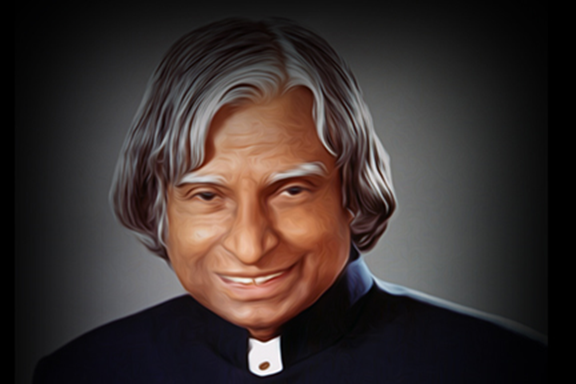
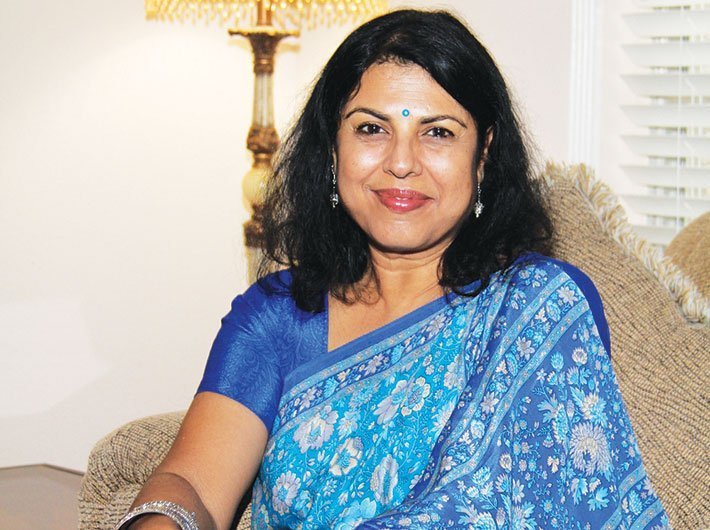
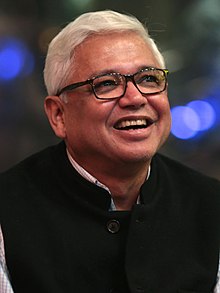
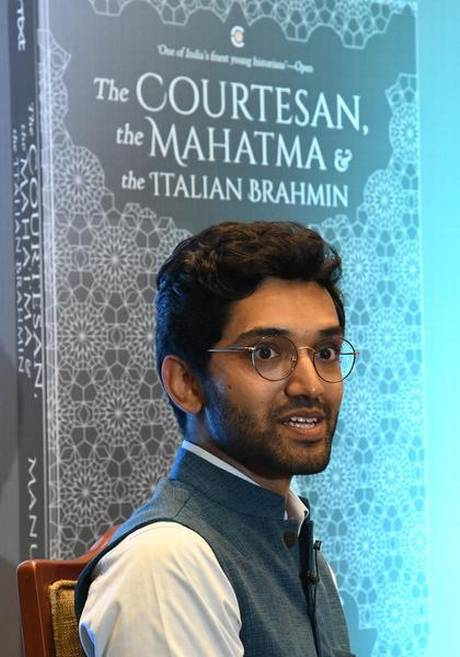
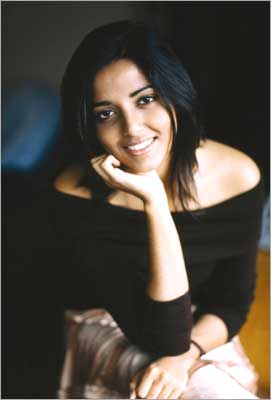


Sorry! No comment found for this post.